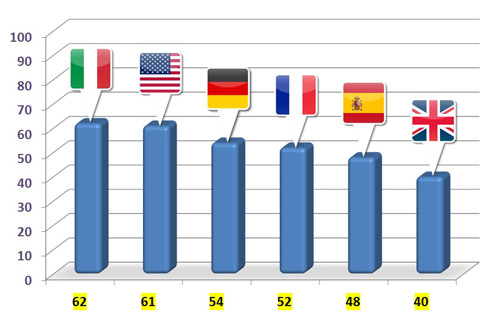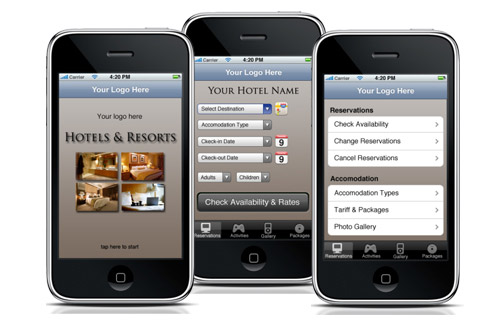In the hospitality industry, success depends on the reputation and satisfied clients that return repeatedly to the hotel or resort. To keep and increase the level of loyalty, hoteliers need to consistently exceed guest expectations and strive to deliver exceptional experiences for every guest.
Since mobile and wireless solutions have become an integral part of daily life, user-friendly mobile sites and mobile applications have turned nowadays into must-have tools for businesses that help them streamline processes and increase productivity. Hospitality apps for smartphones like Blackberry, iPhone, and Android as well as tablets can reinforce the relationship with customers. Furthermore, having an application sends a strong message to the general public that the hotelier is up to date with the latest trends and that its services are of high quality.
Hospitality industry experts say that hotel owners should invest in technology since mobile bookings and online research will only further increase, which is believed to translate into strong growth in hotel profits. While the number of ready-to-go apps and products is growing, a custom software solution for a hotel will always have its advantages.
According to TripAdvisor 2012 Industry Index survey, 47% of global respondents (accommodation owners and managers) plan to offer a program using mobile devices (e.g. mobile apps, special offers and booking on mobile devices, etc.) to engage with travelers in 2012. In the Latin America region, this figure is 50%, in the Asia-Pacific region: 53%.
Figure 1: Hoteliers that plan to engage with travelers using mobile devices in 2012, %
Source: TripAdvisor 2012 Industry Index
Today you can find thousands of travel and hospitality applications across mobile app stores. This has become possible because the development of mobile apps is available now not only for huge hotel chains and luxury hotels but also for small-independent hotels. Let’s take a look at some features that a custom app can have:
- Search hotels by hotel name, airport code, price, distance, and traveler rating;
- Check room availability;
- Make bookings (including last minute bookings);
- Cancel reservations;
- Access to picture galleries;
- Get GPS-enabled directions;
- Mobile check-in;
- Click-to-call the hotel’s front desk;
- Order room service;
- Join customer reward programs;
- Read customer reviews and valuable tips;
- Get information about places of interest around the hotel;
- Integration with social media like Facebook and Twitter;
- QR-code scanner to provide users with in-hotel experiences and offers.
However, it is not enough to only create a mobile application; hospitality businesses should take care to promote it. In order to encourage people to download apps, hotels can use different incentives, such as discounts for services, special offers, etc. Information about mobile apps can be placed on the hotel’s website, in booking confirmation e-mails, social media channels, on brochures, flyers, and other marketing materials.
There’s more than enough evidence for the hospitality industry to take advantage of custom mobile applications. In some years handsets are expected to become the primary customer touchpoint for the majority of hotels. Some hotel chains like Accor, Hilton, Hyatt, InterContinental, Marriott, Sheraton, Ritz-Carlton are successfully using apps already. Even some travel websites have rolled out hotel reservation applications.
Industries and Technology Areas:
Industries: hospitality, tourism, traveling
Technology Areas: mobile application development, software development, iOS, iPhone, iPad, Android, tablet, BlackBerry, Windows Phone, QR code











